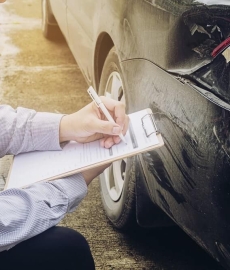What are the Qualifications for a Licensed Insurance Broker?
Posted on March 12, 2021 | by Alex | Posted in Insurance
So you’re interested in becoming an insurance broker in Perth and want to learn about the qualifications for this job position. Insurance brokers are licensed financial advisers that provide professional advice in regards to insurance products and policies. Their goal is to help businesses and individuals secure the right level of insurance cover for their assets.
Insurance brokers have access to a broad spectrum of insurance products and have connections with multiple insurance companies. This enables them to compare multiple insurance products and find the most suitable cover for many different clients.
They also provide the right information to their clients regarding any special conditions or situations that need to be addressed. With extensive knowledge and experience in handling a wide variety of insurance policies, insurance brokers can arrange the most desirable outcome for their clients.
Read on to discover how you can become an insurance broker and the skills necessary to succeed in this field.
What skills does an insurance broker need?


Are you methodical, organised, and excellent at doing research? Do you have great communication (and negotiation) skills? Just like any other job position, being an insurance broker requires the right set of skills so you can secure the best insurance for your customers.
To be successful as an insurance broker, you need to be dedicated to doing numbers and conducting research. You will also need to be great at negotiating and decisive when selecting insurance policies. Most importantly, you need to be driven by helping your clients obtain the best and most cost-effective insurance solution.
Here is the list of skills and attributes that you need to have to thrive as an insurance broker:
- Passionate and eager to help other people
- Methodical and highly organised
- Excellent communication and negotiation skills
- Strong problem-solving skills
- Detail-oriented
As an insurance broker, your job is to act as an intermediary between insurance companies and their clients. You will use your extensive contact list to find and arrange insurance packages from a large number of insurance companies. Being a licensed broker, you are qualified to advise on applicable benefits, costs, exclusions, and negotiable premiums.
In addition to arranging cover, you will also act on your client’s behalf in the event that an insurance claim is made. Here are the tasks you’re expected to complete as an insurance broker.
- Assess your client’s assets and insurance needs
- Research appropriate insurance products to recommend
- Manage/facilitate cover for businesses and individuals
- Act on behalf of your clients during a claim
- Advise clients on benefits and insurance risks
- Liaise with multiple insurance companies
- Provide information regarding costs, exclusions, and details of various insurance products
Steps to become a licensed insurance broker
Step 1: Complete a Certificate III (Tier 1 / Tier 2)
The first step in becoming a licensed insurance broker is to complete a Certificate III in Insurance Broking through an accredited educational institute. You’ll come across plenty of providers that offer this course so make sure to do your research and confirm that the course you’re taking is compliant with the Australian Securities and Investments Commission (ASIC) Regulatory Guide 146.
The course will introduce you to the insurance market in general along with financial and legal information that insurance brokers must know.
Step 2: Acquire your diploma
Once you’ve obtained your Certificate III, the next step is to undertake the Diploma of Insurance Broking. This qualification will offer in-depth information on the fundamentals of insurance broking with an emphasis on building client relationships, identifying risks, and highlighting complex client needs.














